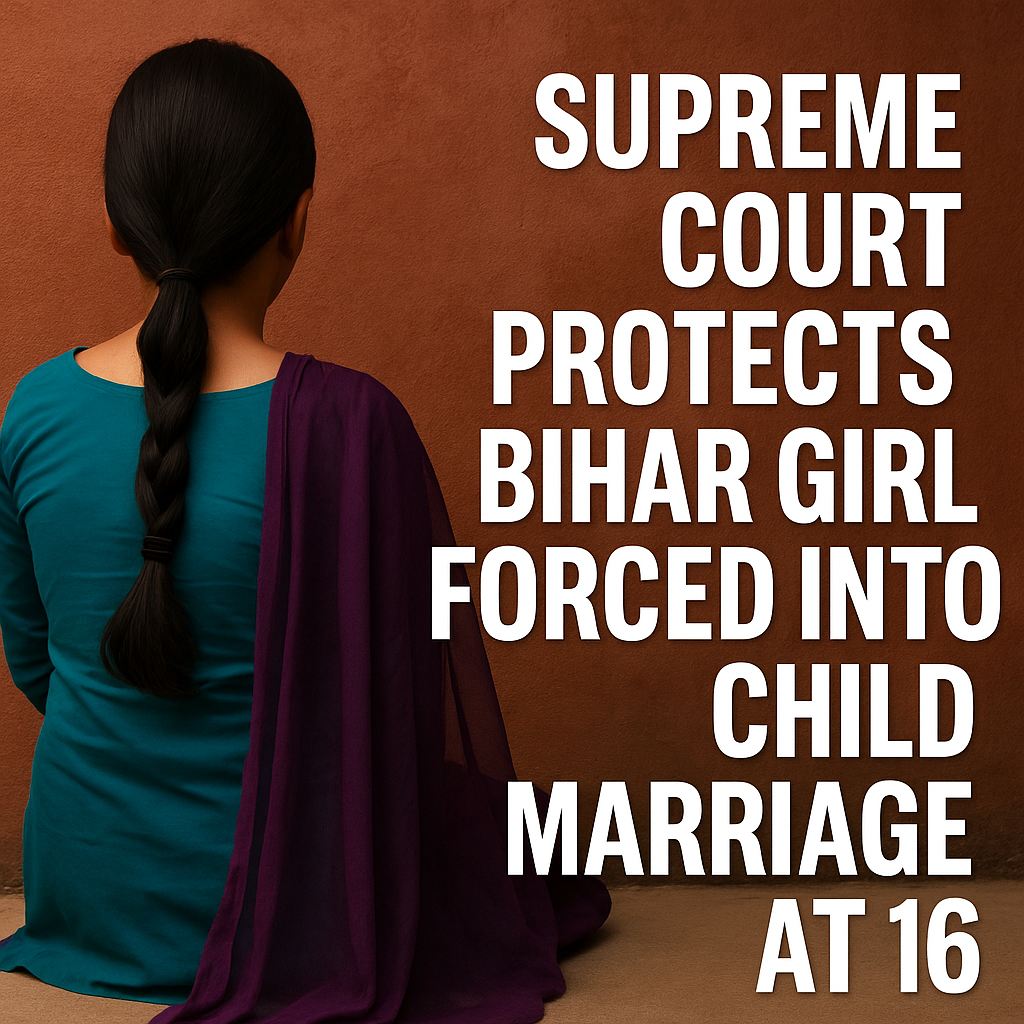
In a heartbreaking case from Bihar, a 16-year-old girl who was forced to marry a 33-year-old man has been granted protection by the Supreme Court of India. The girl, who recently appeared for her Class 10 board exams, was married off on December 9, 2024, under family pressure. After facing abuse and being denied her right to education, she approached the apex court through a friend, seeking annulment of the marriage.
The court has also ordered protection for her friend, who helped her escape the marriage and now faces kidnapping charges. A bench of Justices Ujjal Bhuyan and Manmohan directed the Director General of Police, Bihar, and the Delhi Police Commissioner to ensure the safety of both the girl and her friend. They were also told to provide emergency contact numbers in case of any danger.
According to the girl’s petition, her marriage was treated like a repayment for financial help her family had received. The groom, a civil contractor, allegedly insisted on the marriage in return for the money. After the ceremony, the girl was sent to live with her husband and his family. She was not allowed to return home, even though her family had promised she could come back in two days.
Her in-laws told her she could not study further and pressured her to have a child. She was often reminded of the money spent on her wedding and was emotionally blackmailed to accept the situation. As she resisted physical intimacy, she was reportedly abused and lived in distress for over a month.
This is not an isolated case. Bihar has one of the highest rates of child marriage in India. According to the National Family Health Survey (NFHS-5), around 40.8% of women aged 20–24 in Bihar were married before the legal age of 18. This is much higher than the national average of 23.3%. Poverty, illiteracy, and dowry expectations continue to push families to marry off their daughters at a young age.
Despite laws like the Prohibition of Child Marriage Act, 2006, such practices remain common. In this case, the girl said she wanted to become a teacher or a lawyer, but was told she had to give up her dreams. After her maternal uncle convinced her in-laws to let her visit home, she again requested to end the marriage and resume her studies. Her plea was ignored.
On March 31, 2025, she left her home and reached out to her friend for help. The two have been on the run ever since, fearing threats from the husband. The plea submitted to the court states that the man made public threats to kill the girl and declared that he would “happily go to jail” for it.
This case highlights the urgent need to strengthen the fight against child marriage in states like Bihar. While laws exist, the reality on the ground is grim. Girls are often denied basic rights like education, safety, and freedom. Experts believe that better school access, financial support for poor families, and community awareness programs are essential to stop such marriages.
The Supreme Court’s intervention in this case is a strong message that such violations of law and dignity will not be ignored. But it also raises a bigger question: How many such girls remain unheard?
The young girl’s courage to stand up against this injustice gives hope, but also reminds the country that the battle to end child marriage is far from over. As India moves forward, no child should be forced to choose between safety and dreams.





















